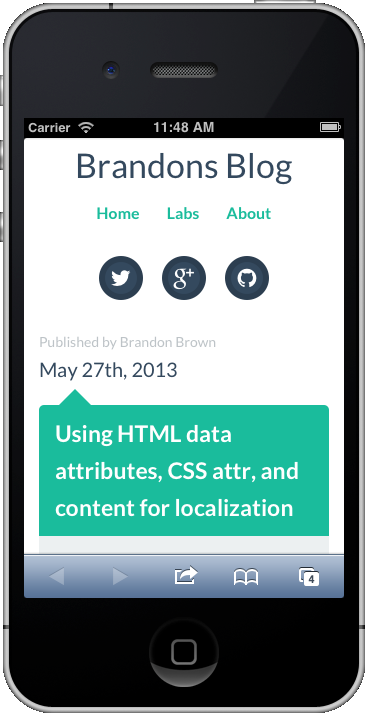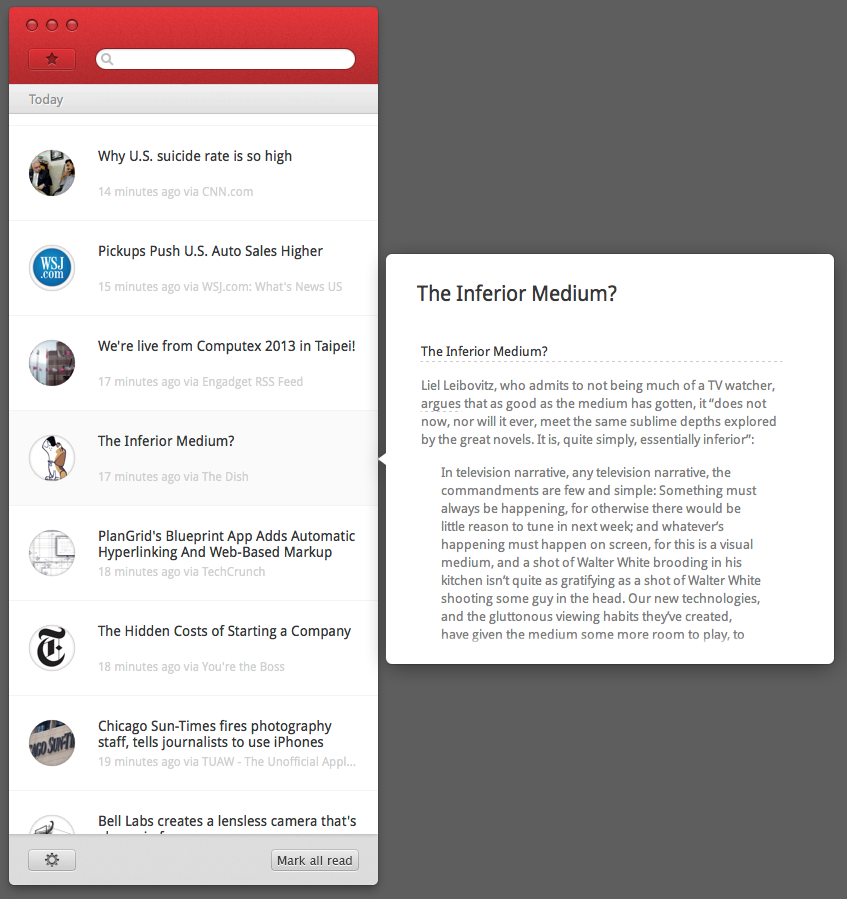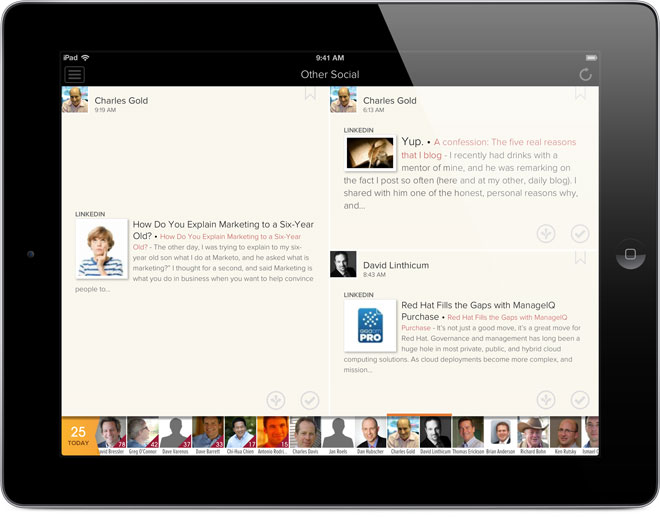
Update Your Toolkit: 4 Cool Tools For Hacking Your Life
Been a while since you reconsidered the organizational tools in your toolkit? Check out these cool products that could hack your life by helping you find relevant news, keep up with business contacts, and share ideas more easily and thoughtfully.
Sometimes an old hammer just works, but you simply want to throw it out.
Maybe you’re getting an itch that now’s the time to throw out the old tools and try something new. I personally find myself doing this all the time, playing with new things, putting them into my organizational workflow and seeing if they stick.
Here’s why: Even if they don’t work out, it gets me thinking about my organizational processes and how I write and work and produce. And like sandpaper, it helps me get rid of the cruft and improve my overall process. You know, life hacking.
Among the cool tools I’ve seen lately that have inspired me or have polished my own approach:

Blogging for the organized: Lost in all the hype about WordPress and Tumblr’s recent success is that they’re not the only platforms out there. Far from it, in fact: Modern takes on the publishing platform have gone many steps beyond the posting interface. Some of the most recent ones, such as Scriptogram, allow you to eschew the interface entirely if you want, instead uploading stories to Dropbox and seeing what happens.
But what if you simply need a way to post ideas on a website from the comfort of an interface you already use? If so, Postach.io is for you. The blogging interface is super-simple, because it’s simply a folder in your Evernote account that you can update at your leisure. If you want to publish the post, just add the tag “published.” It’s that simple. It’s a great way to take an idea you’re playing with in your notes and put it out there, without the overhead of a separate interface. (Side note: If you’re an event planner and not using Evernote, check out this roundup on why you should consider changing up.)

RSS, sans the noise: Since the death knell sounded recently for Google Reader with the announcement of its July 1 demise, people have been looking everywhere for alternatives for their RSS reading. There are some worthy contenders out there, but one of the downsides of some of these approaches is that the interfaces are somewhat more complicated than the spartan-looking Reader was. Sometimes you just want something on the side that you can check. If you’re a Mac user, one option might be Leaf (above), which puts your feeds within reach. Like a Twitter client, it works extremely well as background noise. (I recommend combining Leaf and the Twitter client Echofon for a dual-threat set of streaming updates.) If you’re more web-oriented, Feedly has largely become the heir apparent, though Digg’s upcoming RSS reader is worth watching—especially because the company is basing its approach on data culled from thousands of users.
Follow the algorithms: Speaking of a Google service that’s sort of faded with time, the company’s Alerts platform, while certainly active, has been the target of criticism in recent months. One site, The Financial Brand, argues that the quality of the results have declined significantly in recent years. “But there’s no value in Google’s automated search service when the system fails to catch 95% of the relevant material,” the site argues. “If you want to monitor your own brand on the web, you now have to remember to manually run a Google search on a regular basis.” Perhaps now’s a time to figure out a new way to surface relevant content to your industry. One of the best tools I’ve found for this is Prismatic, which has the supremely impressive ability to unearth stories that would be a challenge to find in other ways. As I noted in an April blog post after paidContent Live 2013, Prismatic is a prime example of an app that makes big data approachable. And for scourers, the ability to surface stories is paramount. It’s become a daily requirement for me.
 The iPad version of Cloze.
The iPad version of Cloze.
Try not to lose contact: If you’ve been watching the startup space closely over the past year, you may have noticed that a lot of companies are trying really hard to reinvent the email message, most notably Mailbox. (Back in February, I was waiting in line for a chance to use Mailbox; it’s been nice so far, though the missing Exchange support is still a weak spot. But this isn’t about that problem—at least not necessarily. ) The thing is, you read a lot of email, and sometimes, you don’t have a good chance to parse it and put it in the context of everything else you’re reading. And let’s face it, social messages are often as useful as the messages in your inbox, but good luck trying to keep up. Fortunately, the startup Cloze, which creates versions for both iOS and web, offers a useful way to play catch-up on things you might have missed. It treats your myriad personal streams as one unified contact list full of people you don’t hear from too often, or say so much in so many places that it’d take you a while to see what they’ve been up to. In my usage, I’ve have found that the best approach is to use Cloze as supplemental to my main apps when I have a little extra time to focus on catching up. (Oh yeah, best feature? It supports Exchange, a rarity among the reboot-email field.)
But the thing is, certain things may work well for me that won’t work well for you at all. And I’d love to use this opportunity to introduce everyone to some cool new apps that are helping you reach new levels of productivity. What sort of tools do you use to keep everything in line—whether they’re web-based, app-based, or something else?
Let me know your take below.
(iStockphoto/Thinkstock)






Comments